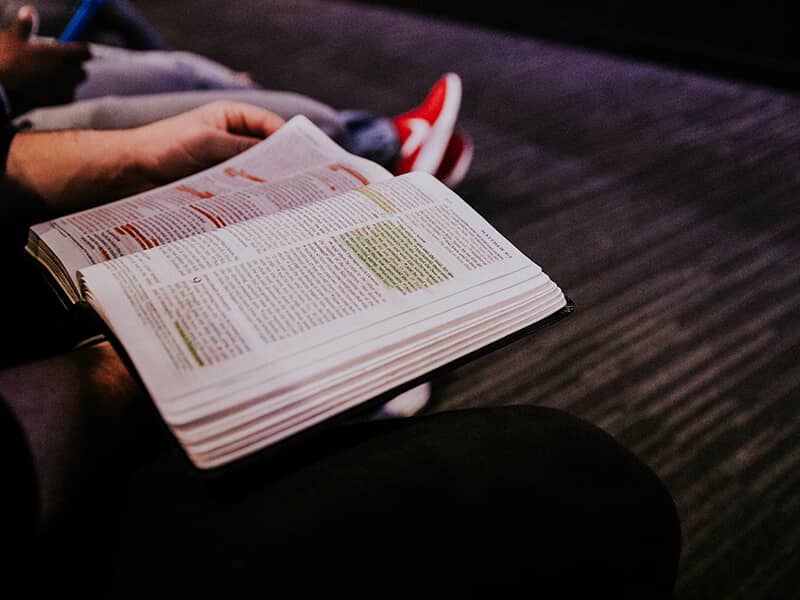The value of an education was lost on Tonya Jordan until her children started school. When she was growing up in Milwaukee's inner city, she says, her parents didn't stress the importance of the classroom. Instead, the strict family edict for the six Jordan children was: "When you get 18, you had to get out of the house."
"All I did was live to turn 18," Jordan, now 35, says. "I graduated from high school and went to work."
While Jordan's friends went to college, she took a string of dead-end jobs and became the single mother of three children.
"I felt like a big dummy," she says candidly, sitting on the yellow-and-green sofa in her sparsely decorated Milwaukee home. "You get tired of being poverty- stricken. You get tired of the low-paying jobs. Finally, you think: 'Ding-dong, something is wrong.'
"You deprive yourself of life when you are not educated."
For Tonya Jordan, Milwaukee's voucher program has made the difference between having a choice for her girls and 'public school or nothing.'
It's those fundamental beliefs that drive Jordan to seek a better life for her three daughters. And it's that quest that led her to enroll her two eldest, Simone, 12, and Hanan, 10, in a private Muslim school last year using the Milwaukee voucher program. Her 3-year-old daughter, Abena, is in preschool.
More than 10,700 Milwaukee students use the publicly financed tuition vouchers to attend their families' choice of schools, including religious schools, while about 9,800 attend charter schools, which are public but operate independently.
"Now, we're finally telling our story," he says, adding that test scores were often the sole public image of the city's schools. "We have the best possible education available for young people in Milwaukee, and we're going to fight for kids."
But the district will have to work even harder to restore Jordan's confidence. Trying to make public schools work for her daughters, she became a school connoisseur of sorts, "shopping" for the best educational environments. She enrolled Hanan and Simone in the city's best public schools. Jordan herself is a 1984 graduate of Rufus King High School, which is a college-preparatory magnet school.
But for Jordan, overcrowded classes and what she believed were uncaring teachers and administrators prompted her to examine alternatives. Hanan briefly attended a charter school, for example.
"Public schools took me to my limit," says Jordan, who is Muslim.
She turned to Clara Mohammed School for both Hanan and Simone, seeking the spiritual and moral foundation of Islam along with multiplication tables and grammar.
Housed in a former leather factory and store on Martin Luther King Jr. Street, the K-9 school is part of a national school system founded by Clara Mohammed, the late wife of former Nation of Islam leader Elijah Mohammad. The school is in the midst of much-needed renovations. Half-finished classrooms are missing walls, and space heaters provide climate control.
Still, students seem comfortable in their small classrooms, learning how to write the Arabic alphabet or reading a passage from S.E. Hinton's Rumble Fish. Since 1997, word has spread about Clara Mohammed, and thanks to vouchers, the school's enrollment has nearly tripled, from 50 to 131 students. Most are not Muslim.
Clara Mohammed students must follow the laws of Islam. Girls must cover their heads with a hijab or scarf and wear tops that cover their hips. All students wear navy-and-white uniforms. Students pray every morning in Arabic and English.
"They think I'm punishing them," Jordan says, laughing, as Hanan nods her head in agreement. Taking a break from her math workbook, Hanan adds: "There's too much homework!"
Principal Basima R. Abdullah says vouchers and charter schools help parents like Jordan make more informed educational choices. "Parents are being more considerate of their children's needs," she says.
Without the 11-year-old Milwaukee voucher program, which pays $5,500 toward a child's private school tuition, Jordan couldn't afford to send the girls to Clara Mohammed School.
"It was public school or nothing," says Jordan, referring the situation without vouchers. She now works as a reading assistant at the school, a job that pays less than $20,000 a year. The vouchers cover the entire tuition bill for both girls.
Jordan says she knows that as a poor, African-American single mother who has embraced vouchers, many people would use her for political gain. But Jordan, who has lobbied state legislators and marched in the capital with other parent advocates to keep the voucher program, says she has yet to spot any conspiracy.
"If [vouchers] were designed to take advantage of poor people, then it's turned on [the sponsors], because it's helping me," she argues unabashedly. "I'm going to use [vouchers] to get the best education I can give my children."

